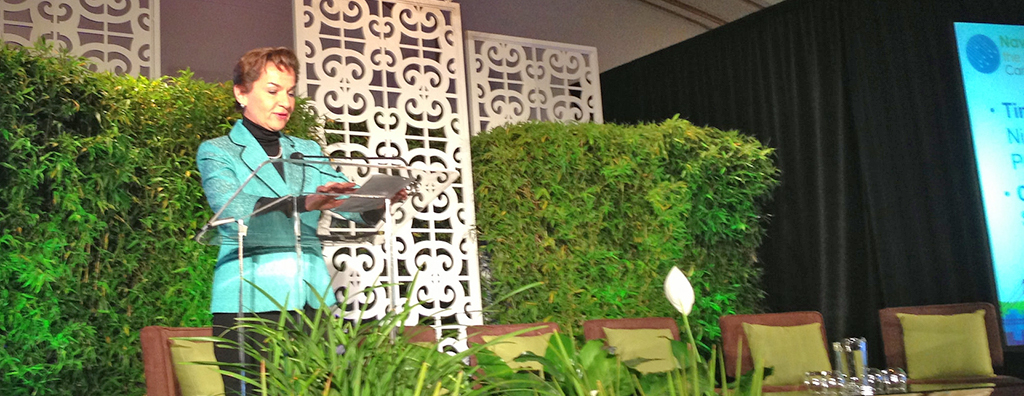
Support for Navigating the American Carbon World Conference
Kasey Krifka, The Climate Trust
March 29, 2017
The Climate Trust is excited to once again serve as a Supporting Organization sponsor for the premier Navigating the American Carbon World (NACW) conference this year. Senior leadership will be in attendance, with Climate Trust Executive Director, Sean Penrith, leading the breakout session, “The Future of Offsets and Their Role.” The session is scheduled for 1:15pm on Friday, April 21st.
2017 marks the 15th consecutive year NACW will bring together the most active and influential players in North American climate policy and carbon markets. Because of the number of attendees and the collaborative nature of the event, NACW serves as an outstanding opportunity for networking with colleagues from the business, government, nonprofit, and academic sectors. It is the continent’s longest running conference for discussing climate policy and carbon markets and has a well-established history of providing the most comprehensive and up-to-date information on these topics.
NACW 2017 will take place April 19-21 in San Francisco and is hosted by the Climate Action Reserve, a pioneer in carbon accounting and a trusted offset project registry.
Session topics will include U.S. and North American climate policy, international climate agreements, green investments, the current status and future growth of California’s historic cap-and-trade program, other established and emerging carbon markets, the status of the Clean Power Plan, and climate finance. The format of each session will be an interactive discussion among the panelists, guided by a moderator, with audience questions to wrap things up.
“NACW has always had a strong vibe of energy and excitement, but it’s looking like that will be magnified this year,” said Sean Penrith, Executive Director for The Climate Trust. “With significant changes and initiatives underway on federal, subnational and international levels, there’s a considerable number of issues to cover, and we are honored to help lead these discussions and to be in the company of such a strong lineup of keynote speakers,” continued Penrith.
Event speakers will include: California Senate President pro Tem Kevin de León, California State Treasurer Betty Yee, California ARB Chair Mary Nichols, NextGen Climate Founder and President Tom Steyer, and Washington Post editorial cartoonist Tom Toles.
A Brief Summary of Sean’s Planned Remarks on the Future of Offsets
- Any effective, comprehensive policy should address how to efficiently regulate the broadest sectors of the economy, including: electricity generators and importers, large industrial emitters, transportation and suppliers of natural gas and transportation fuels.
- Natural and working lands are integral to the State’s climate change strategy. Storing carbon in trees, plants, aquatic vegetation, and in the soil is one of the most effective ways to remove greenhouse gases from the atmosphere. Using the offset mechanism to reach this uncapped sector is ideal since it offers a pathway to providing real and permanent reductions in the forestry and agriculture sectors, stimulates investment in projects in these sectors, and offers a cost containment mechanism for covered entities.
- Offsets have been subject to a number of challenges, primarily from environmental justice advocates. These stakeholders feel that the existence of offsets inhibit high emitting facilities from taking measure to reduce emissions at site. If offsets were struck from the menu, complying facilities would likely just use more allowances; removing a vital cost containment mechanism, and potentially negatively impacting disadvantaged communities who would bear the higher compliance costs.
- ARB-led discussions and stakeholder workshops have led to the questioning of offsets, the offset 8% limit, and what a post-2020 program could look like should offsets be removed. This is extremely challenging. Offset projects demand investment, time, and resources to develop. Any questions around the certainty of the offset market have a damaging effect on project pipelines and corresponding investments.
- ARB included offsets in their plan to deliver on certain aims. These included achieving reductions in sectors not covered in the cap and trade mechanism; incentivizing investment and innovation in clean, low carbon technologies inside and outside California; delivering a program-wide cost containment mechanism; providing cost containment to manage the costs passed on to ratepayers and consumers; and offering additional environmental co-benefits and strengthening linkages with other jurisdictions. The offset mechanism is delivering on these goals.
- ARB will likely continue to offer the offset avenue to covered entities post 2020. The sooner they are able to commit to that publicly, and with the appropriate authority, the better!
Image credit: Flickr/UNclimatechange